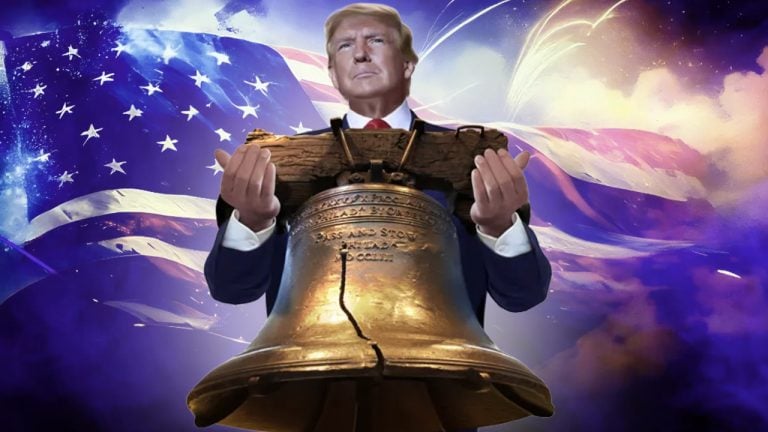 On April 18, former U.S. president Donald Trump announced a second series of his digital Trump card collection, following the “great success” of his initial non-fungible token (NFT) trading cards. Despite selling out rapidly, Trump stated on Truth Social that he maintained the initial card prices for the new collection. Trump Unveils Series 2 NFT […]
On April 18, former U.S. president Donald Trump announced a second series of his digital Trump card collection, following the “great success” of his initial non-fungible token (NFT) trading cards. Despite selling out rapidly, Trump stated on Truth Social that he maintained the initial card prices for the new collection. Trump Unveils Series 2 NFT […]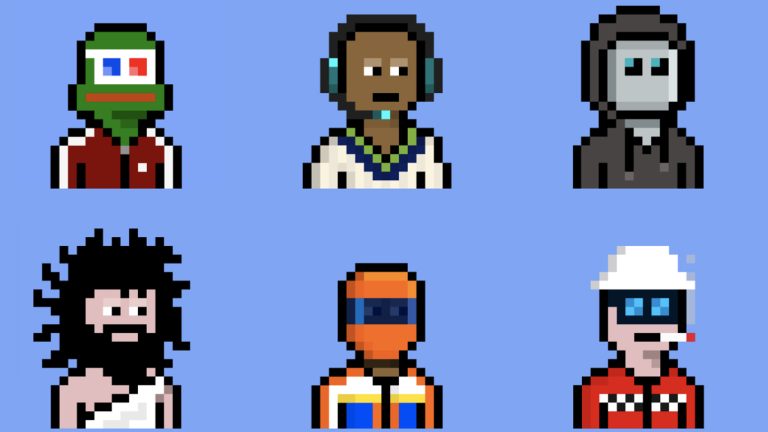 Sales of non-fungible tokens (NFTs) increased this week, with $179.64 million in sales over the last seven days. NFT sales rose 7.28% and transactions grew by 2.29% during this period, but the number of digital collectible buyers decreased by 4.34%. NFT Sales Improve This Week, Rising 7.28% Higher Sales of non-fungible tokens (NFTs) have trended […]
Sales of non-fungible tokens (NFTs) increased this week, with $179.64 million in sales over the last seven days. NFT sales rose 7.28% and transactions grew by 2.29% during this period, but the number of digital collectible buyers decreased by 4.34%. NFT Sales Improve This Week, Rising 7.28% Higher Sales of non-fungible tokens (NFTs) have trended […]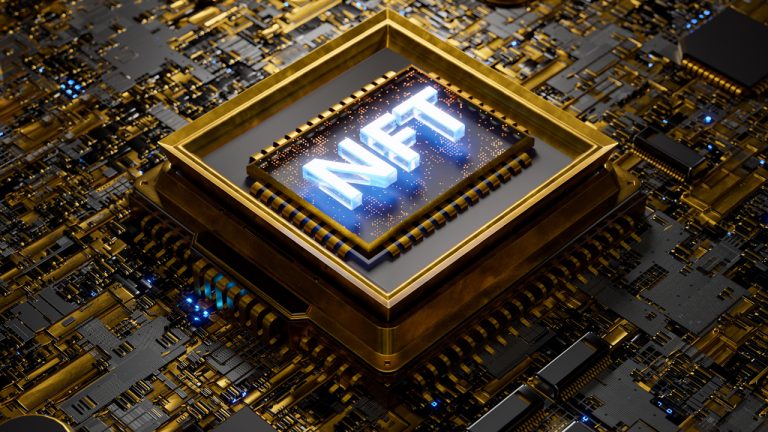 According to statistics, the number of non-fungible token (NFT) sales in March was 31.42% lower than the previous month, dropping from $1.03 billion in sales for February to $882.89 million. The number of NFT buyers and transactions also declined, by 22% to 29%, over the last 30 days. March NFT Sales Slow, Ethereum Sales Dominate […]
According to statistics, the number of non-fungible token (NFT) sales in March was 31.42% lower than the previous month, dropping from $1.03 billion in sales for February to $882.89 million. The number of NFT buyers and transactions also declined, by 22% to 29%, over the last 30 days. March NFT Sales Slow, Ethereum Sales Dominate […] Over the past week, statistics show non-fungible token (NFT) sales totaled $193.08 million, down 5.44% from the previous week. Ethereum dominated NFT sales with more than $107 million or 55% of all sales, while Solana-centric NFT sales recorded $26.3 million or 13% of sales in the same period. NFT Market Shows Signs of Slowdown With […]
Over the past week, statistics show non-fungible token (NFT) sales totaled $193.08 million, down 5.44% from the previous week. Ethereum dominated NFT sales with more than $107 million or 55% of all sales, while Solana-centric NFT sales recorded $26.3 million or 13% of sales in the same period. NFT Market Shows Signs of Slowdown With […]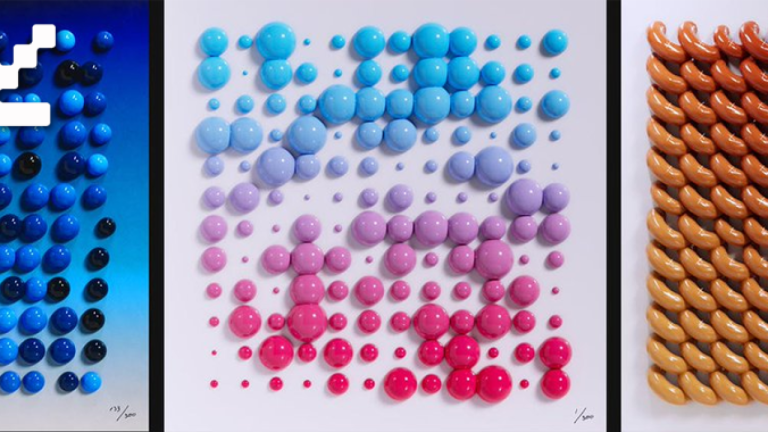 Yuga Labs, the creators of the blue-chip non-fungible token (NFT) collection Bored Ape Yacht Club (BAYC), announced that the team has completed its Ordinal Inscription auction with a total of 3,246 bidders. The Twelvefold collection of inscriptions generated 735.7 bitcoin, worth more than $16 million. The highest bid was 7.1159 bitcoin, equivalent to $160,000. Individuals […]
Yuga Labs, the creators of the blue-chip non-fungible token (NFT) collection Bored Ape Yacht Club (BAYC), announced that the team has completed its Ordinal Inscription auction with a total of 3,246 bidders. The Twelvefold collection of inscriptions generated 735.7 bitcoin, worth more than $16 million. The highest bid was 7.1159 bitcoin, equivalent to $160,000. Individuals […]
Snoop Dogg has had a considerable presence in the Web3 creator movement since NFTs first gained popularity in 2021.
American rapper and actor Snoop Dogg has been revealed as one of the co-founders of a Web3-powered live streaming app called “Shiller" — adding to yet another Web3 partnership for the well-known hip-hop artist.
The app is described as a “live broadcast platform” that aims to combine Web3 technology with real-time live-streaming content. The rap star has been named as a co-founder of the app along with technology entrepreneur Sam Jones.
Get ready for the Web3 live stream revolution!
— Shiller (@shiller) February 11, 2023
Say goodbye to the middlemen and hello to true creator empowerment with Shiller!
Apply now https://t.co/w43RvAGN3t pic.twitter.com/YV9H2Wa5LF
It follows a wave of Web3 partnerships by Snoop Dogg in the last year.
In April last year, Snoop Dogg partnered with Sandbox metaverse to launch an NFT collection called “Snoop Avatars” and released a hip-hop single titled “A Hard Working Man,” which was later accompanied by a 50,000-piece NFT drop.
The rap star also partnered with Yuga Labs — the team behind Bored Ape Yacht Club (BAYC) and CryptoPunks — to perform on a metaverse-transformed stage at MTV’s Video Music Awards on Aug. 29.
Snoop Dogg also recently partnered with crypto casino Roobet, where he will serve as the firm’s “Chief Ganjaroo Officer,” according to a March 1 statement from Roobet.
As for Shiller, blockchain will feature heavily in the platform, allowing content creators to “token-gate” their streams and promote nonfungible tokens or other products from e-commerce websites.
These content creators can be paid out in cryptocurrencies such as Ether (ETH) or NFTs, which can be cashed out as fiat.

It was slated for a January release but has been delayed until April, according to Shiller’s latest update on March 2.
The launch of Shiller appears to be part of a broader creator economy movement where Web3 will likely play a role.
While “Web1” enabled users to write HTML and read content, “Web2” enabled user-to-user interactions — which was brought to the masses by a few social media monopolies, such as Facebook, Google and YouTube.
The “Web3” movement aims to eliminate these intermediaries by providing creators with complete ownership over their content and the monetization that flows from it.
Related: Music NFTs are helping independent creators monetize and build a fanbase
Decentralized messaging platforms are beginning to emerge too, with one named “Damus” attempting to become a “Twitter killer.”
Backed by Jack Dorsey, Damus went live on the Apple App Store on Feb. 1. It is built on a decentralized network that enables encrypted end-to-end private messaging, called “Nostr.”
The platform comes with built-in Bitcoin (BTC) payments on the Lightning network.
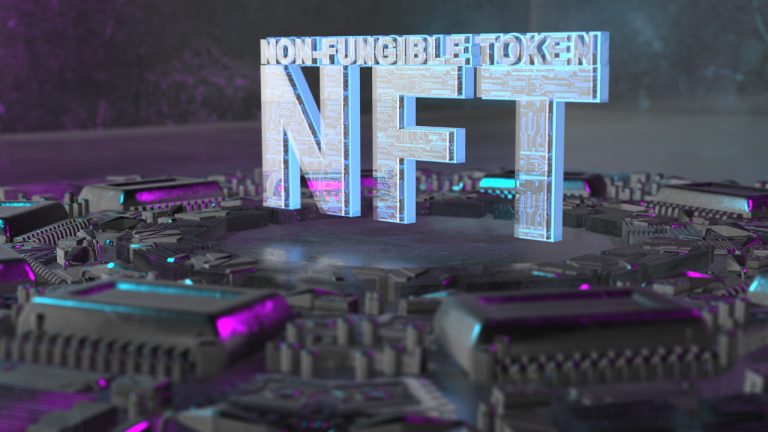 After a significant spike in February, sales of non-fungible tokens (NFTs) in the last seven days are 32.32% lower than last week. Of the 19 different blockchains, Ethereum accounted for $148.56 million out of the total $186.20 million in NFT sales settled this week. NFT Sales Decline Following February Spike in Digital Collectible Purchases During […]
After a significant spike in February, sales of non-fungible tokens (NFTs) in the last seven days are 32.32% lower than last week. Of the 19 different blockchains, Ethereum accounted for $148.56 million out of the total $186.20 million in NFT sales settled this week. NFT Sales Decline Following February Spike in Digital Collectible Purchases During […] On Monday, Feb. 27, 2023, the number of Ordinal inscriptions on the Bitcoin blockchain crossed 200,000 at 1:02 p.m. Eastern Time. In addition to the 200,000 inscriptions, Yuga Labs, creators of the Bored Ape Yacht Club (BAYC) non-fungible tokens (NFTs), revealed that the team had created a collection of 300 generative ordinal NFTs called Twelvefold. […]
On Monday, Feb. 27, 2023, the number of Ordinal inscriptions on the Bitcoin blockchain crossed 200,000 at 1:02 p.m. Eastern Time. In addition to the 200,000 inscriptions, Yuga Labs, creators of the Bored Ape Yacht Club (BAYC) non-fungible tokens (NFTs), revealed that the team had created a collection of 300 generative ordinal NFTs called Twelvefold. […]
Google Trends data shows interest in NFTs has waned, even as trading volumes are surging, while Korean multinational giant Lotte has partnered with Polygon.
Bored Ape Yacht Club (BAYC) creators Yuga Labs has announced a new NFT collection on Bitcoin dubbed “TwelveFold.”
The move was announced via Twitter on Feb. 28, with Yuga Labs unveiling 300 tokenized computer generated artworks as part of the TwelveFold collection that will go up for auction later this week.
Introducing TwelveFold. A limited edition collection of 300 generative pieces, inscribed on satoshis on the Bitcoin blockchain.https://t.co/aFWEIhzqcI pic.twitter.com/PjWABKKBr4
— Yuga Labs (@yugalabs) February 27, 2023
In an accompanying blog post, Yuga Labs explained the concept behind the collection is based on mathematics, time and the Bitcoin blockchain.
“TwelveFold is a base 12 art system localized around a 12x12 grid, a visual allegory for the cartography of data on the Bitcoin blockchain,” the post reads, adding that:
“Satoshis are the smallest individually identifiable units of a Bitcoin. An inscribed satoshi can be located by tracking when that satoshi was minted in time via the Ordinal Theory protocol.”
“Inspired by this, our collection explores the relationship between time, mathematics, and variability,” it explained.

Yuga Labs cited the recent buzz around Bitcoin NFTs, or Ordinals, as the reason why it chose to drop a collection on the network.
“Stepping into the Ordinals Discord a month ago felt like getting a glimpse of the 2017-era Ethereum NFT ecosystem. It’s the type of energy and excitement we love at Yuga,” the firm stated.
Yuga Labs is launching an Ordinal Inscription collection on Bitcoin.
— Eric Wall | Taproot Wizard #2 (@ercwl) February 27, 2023
The instructions on how to acquire them involves running a self-custodial Bitcoin wallet, requires an empty Bitcoin address, and all bids will be in bitcoin.
They also provide a guide to Bitcoin UTXOs. pic.twitter.com/NQJeZQaagp
According to Google Trend data, search interest for NFTs has fallen to levels not seen since early 2021 — before the NFT boom — suggesting interest could be waning for nonfungible tokens.
NFT trading volume data from February however, suggests otherwise.
Google Trends uses a metric of 0-100 to display interest in various keywords that people look up in its search engine. Between Feb. 19 and Feb. 25, the keyword “NFTs” scored a mere seven out of 100.
Such levels haven’t been seen since early-to-mid January 2021, while it has been a steep decline since the all-time high of 100 between Jan. 23 and Jan. 29, 2022.

NFT trading volume in February paints a different picture however.
According to data from CryptoSlam, there has been $997.14 million worth of global NFT sales for the month, following on from the $1 billion posted in January.
These levels bring the NFT market back to that of June 2022 and its $982 million worth of sales, before dipping to a low of $460 million in October 2022.
More recently, sales volume has been on a significant incline, with the launch of the trader-friendly marketplace Blur being a key contributor behind this.
The man who won the Golden Key NFT for posting the highest score on the BAYC-affiliated Dookey Dash game has sold the token for 1,000 Ether (ETH), or roughly $1.63 million.
Twitch streamer Kyle Jackson, also known by his pseudonym Mongraal online, initially received the key on Feb. 16 after notching a hefty 928,522 points during the Dookey Dash competition hosted by Yuga Labs.
Wasting no time, Mongraal announced on Feb. 27, that he had agreed to sell the key to Adam Weitsman, BAYC NFT hodler and CEO of scrap metal shredding company Upstate Shredding.
I have agreed to sell the key for 1000 ETH to @AdamWeitsman. Super nice guy and thrilled the sale went through with him.
— Mongraal (@Mongraal) February 27, 2023
A special thank you to @yugalabs for hosting an incredible competition. I look forward to competing in future events. Royalties will be paid in full.
1/2
The Golden Key is bound to unlock something special from Yuga Labs, however, the specific details have not yet been revealed.
Polygon Foundation, the non-profit organization behind Ethereum-layer 2 scaling network Polygon, has partnered with South Korean multinational conglomerate Lotte Group to host the firm’s NFT projects.
According to a Feb. 27 announcement from Lotte’s marketing and NFT hub, Daehong Communications, the partnership will see Lotte’s avatar-based NFT project BellyGom ported over to Polygon from the Klatyn network.
The project will be rebranded as BellyGom season 2, and the NFTs offer hodlers benefits relating to Lotte’s product and service lines such as shopping discount coupons and hotel vouchers. New additionally benefits have been teased moving forward, but details were sparse in the announcement.
Lotte has nearly 100 different business units across areas such as fast food, candy manufacturing, electronics and hotels. As of September 2022, the firm is estimated to have around $15 billion worth of assets on its balance sheet.
Looking more broadly, the firm has outlined intentions to develop its Web3 initiatives in partnership with Polygon, as Lotte looks to expand its NFTs to a global audience and develop “a new NFT business model rather than simply issuing NFTs.”
Related: Blur runs after OpenSea market share, but its success depends on upcoming governance proposals
The move adds to Polygon’s growing list of partnerships with major brands such as Startbucks, Adidas, Adobe and Prada.
According to a survey from metaverse platform, Metajuice, almost three out of four of the NFT collectors on its platform purchase NFTs for status, uniqueness and aesthetics.On the other hand, 13% percent of the survey participants said that they are buying NFTs to resell them in the future.
A group of well-known Japanese tech companies agreed on Feb. 27 to forward the creation of the “Japan Metaverse Economic Zone. Along with creating the Japan Metaverse Economic Zone, the agreement focuses on building an open metaverse infrastructure called “Ryugukoku,” which will spark the next wave of metaverse development.
 Non-fungible token (NFT) sales have soared this past week, climbing 138.15% higher than the week before. Sales recorded between last Friday and Feb. 24, 2023, indicate that $801 million in NFT sales have been settled over the last seven days. Ethereum Digital Collectibles and Mutant Ape Yacht Club Lead NFT Sales Surge While crypto asset […]
Non-fungible token (NFT) sales have soared this past week, climbing 138.15% higher than the week before. Sales recorded between last Friday and Feb. 24, 2023, indicate that $801 million in NFT sales have been settled over the last seven days. Ethereum Digital Collectibles and Mutant Ape Yacht Club Lead NFT Sales Surge While crypto asset […]